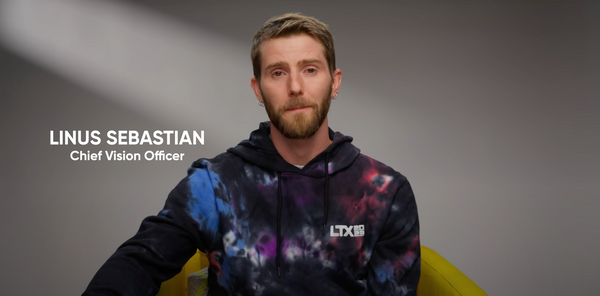How to stay civil, vulnerable, and (maybe) change the organisation
Subscriber Vincenzo asked me three intriguing questions about the last issue’s topics. Here’s my advice.
Good morning; first, I have to say that I’m very grateful for the responses I got after the newsletters on manipulative communication. I highly appreciate and value the exchanges with all of you.
In the last issue, I wrote about countering manipulative behaviour in the workplace. Vincenzo, also a subscriber, had some great follow-up questions:
- How do you stay patient without acting uncivil?
- Where does the trust come from to be vulnerable?
- How do you translate this beyond your own (organizational) influence within a company?
Before answering Vincenzo’s questions, I want to state that my responses might not apply to everybody’s situation. Every person and every organization is different. These are just my suggestions drawn from my own experiences in various workplaces. Let me know in a reply how you would answer those questions.
How do you stay patient without acting uncivil?
To stay calm and patient can sometimes be challenging. We all have our tolerance for how much incivility and manipulation we can handle. To be frank: It merely depends on your character.
However, let me tell you about a confrontation I once had with a deputy editor-in-chief. I went up to him to discuss an early draft of a story. He took a short glance, and suddenly, he erupted. Yes, he shouted all over the place. I asked once what the problem was, but he didn’t calm down. So I retreated.

I did so because a) I don’t want to battle in a shouting match, and b) I would have lost anyway. Simultaneously, by deciding not to engage, I switch from a passive to an active role. If he wanted to continue the discussion, he had to come to me. In fact, 15 minutes later, he did and apologized and told me what I already suspected: His outrage had nothing to do with me but other factors.
The experience didn’t only teach me a lesson but also formed respect for this senior person. It takes some bravery to admit mistakes. In hindsight, I could have handled the situation even better by decisively voicing that I don’t engage in this kind of tone.
So my advice is to don’t communicate unprofessionally and explicitly clarify how you want to be treated. Also, block some time to reflect. I force myself to do so by publicly blogging, and yes, this newsletter is also kind of a reflection.
Where does the trust come from to be vulnerable?
That’s the hard part: Without vulnerability, there’s no trust. Being vulnerable is a risk, and if there’d be trust, it wouldn’t be a risk. It’s a leap of faith.
Let me illustrate this with another personal story. A year ago, my girlfriend and I broke up after more than four years. It was a warm September Sunday. I wasn’t in a great place, to say the least.

On Monday, I took the chance and told my co-worker about it since it might influence my mood and behaviour at work. I dared to share something very personal and painful without knowing how he’d react.
What happened was astonishing. He also opened up about some personal struggles that occupied his mind at the time. It was no longer a conversation between employee and superior but between two equal human beings.
Since then, we’ve established a sincere and trusting relationship. Being honest with each other requires courage, but ultimately it will pay off.
How do you translate this beyond your own (organizational) influence within a company?
Oh, that’s the tricky question. I admit to being lucky: I work with different people and teams all the time. These instances always provide an opportunity to initiate change. However, it’s hard for me to measure the impact I might have on others.
I also don’t really have a personal experience to answer this question. Nevertheless, I could promote the Team Canvas as an adequate tool to other team leaders. I think that change on a larger scale has to be informed by the leadership of an organization.

There are small steps you can take: Lead by example and inspire others. If you’re a team leader, you should also reflect on your role. Personally, I subscribe to the philosophy of servant leadership. It’s not my job to continually correct my employees but create an environment where they can be at their best.
Hopefully, my behaviour leads to higher satisfaction within the team, and therefore, might inspire other team leaders to follow the path.
Do you have any further questions or possible answers to the questions above? Let me know by hitting reply.
Also, a quick shoutout to Konrad Weber, who started his own company around digital strategy, team building, leadership, agility, and transformation. Check out his website.
Best,

P.S. Be sure to hit 👍 or 👎 to give me a sign of whether you liked this newsletter or not.
If you don't want these updates anymore, please unsubscribe here.
If you were forwarded this newsletter and you like it, you can subscribe here.
Created with Revue by Twitter.





